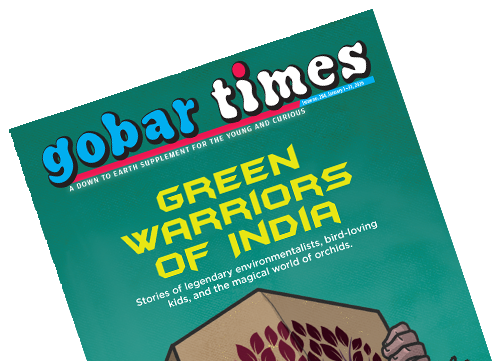
World Health Organization has issued a strong warning about the effects of air pollution on children. On October 29, 2018, it released a report called Air Pollution and Child Health. It states that in 2016, 600,000 children died from acute lower respiratory infections caused by polluted air. What is worse is that 93% of the world's children under the age of 15 (1.8 billion) are exposed to high levels of PM 2.5 which are superfine air pollutants. Worst are those living in developing countries where 98 per cent of all children are exposed to very unhealthy air.

Rivers are an essential part of our lives and the ecology. But we turn them into drains. Here is how we can help save our rivers.

The Han meets the Yamuna river and tells her how even she can flow and flourish in peace. Han smiled and hugged Yamuna. For a moment, Yamuna forgot the toxic filled surrounding she lived in. Yamuna lowered her eyes and began opening up to Han. “Look where I live Han. I cannot breathe; move my arms or even my feet. Every day, the drains add more filth into the river and the people of the city for whom I travel from so far, do not even throw a glance at me. For them, I am a stinky black drain.”

Most of us love fireworks during Diwali. But these bright and colourful crackers have a dark side It's the toxic metals that give fireworks the beautiful colours we find magical The red colour of a firecracker comes from Strontium, a metal that causes bone growth problems in children Barium, which gives fireworks the green colour, is harmful to the nervous system, the heart and can cause tremors, weakness, anxiety, shortness of breath and paralysis.

Genetic engineering is used to modify the food we eat. But do we know enough about its effect on us? For as long as we know, the food we eat is grown in farms and fields by farmers who sow seeds and harvest them every season. Adulterations in food products sold loose, such as pulses or sugar in the local kirana stores, is quite common. But we never worry about adulterations while buying packaged food from the shelves of our favourite shop. After all, they pass through several quality checks. But a study by Delhi-based non-profit Centre for Science and Environment (CSE) has found that packaged food items have genetically …

Wetlands purify water through natural processes where aquatic plants act as bio-filters. Plants absorb phosphates and nitrates from the water and roots help to put back oxygen into the water. Constructed wetlands are a cost-effective method of treating wastewater and polluted water bodies. These are low cost solutions and can be easily made or replicated.

Water is the essence of life, and we need to adopt practices to save and reuse it

The story of David and Goliath retold in a farmer’s legal battle for climate justice

